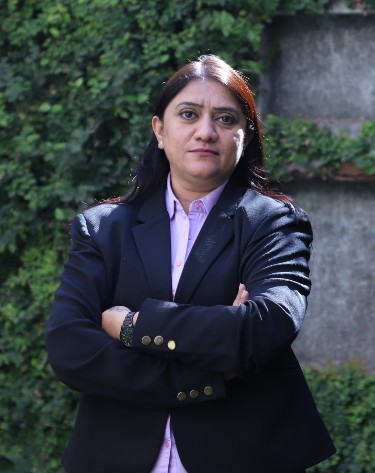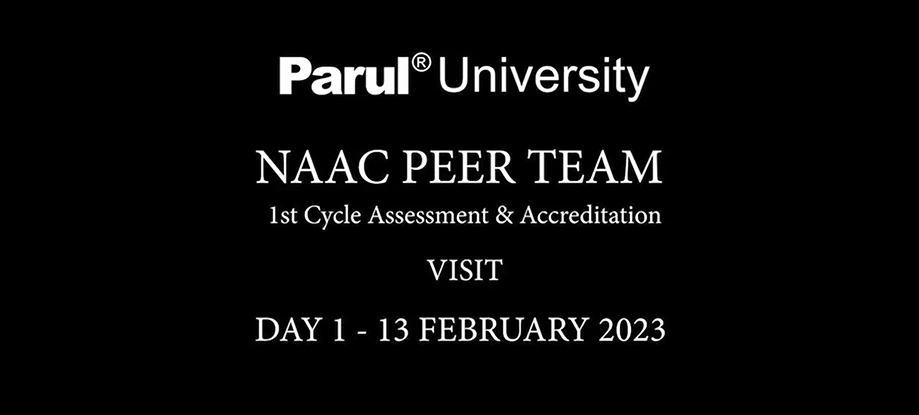About Internal Quality Assurance Cell
At parul University, our commitment to academic excellence extends beyond accreditation to fostering a culture of continuous improvement and quality enhancement. Central to this mission is our Internal Quality Assurance Cell (IQAC), established in 2016 in line with the XII Plan Guidelines of the University Grants Commission. The IQAC serves as the cornerstone of our quality initiatives, embedding quality benchmarks and ensuring the seamless dissemination Of quality enhancement information.
The primary objective of our IQAC is to instil a deep-rooted quality consciousness within the institution, vital for sustained quality improvement. The efficacy of external assessments by bodies such as the National Assessment and Accreditation Council and the National Institutional Ranking Framework hinges on the robust functioning of our IQAC.
Our IQAC acts as the institutional nerve centre, ensuring the accurate and consistent flow of quality assurance measures. It facilitates key educational aspects such as research, development, and comprehensive quality recording, thereby driving our institution’s continuous advancement.
“We believe in Quality, Equality, and Excellence.”


Vision
To develop a self-driven education system resolute to quality ethos in all processes at all levels of Parul University


Mission
To provide a flexible and accessible modem multi-disciplinary knowledge system, creating future leaders for India and the World.
Goals of IQAC


To develop a quality system for conscious, consistent and catalytic programmed action to improve the academic and administrative performance of the University


To promote measures for institutional functioning towards quality enhancement through internalization of quality culture and institutionalization of best practices.
Functions of IQAC
Members of IQAC
Dr. Falguni Acharya
Director IQAC
The Provost

Dean, Faculty of Engineering and Technology

Dean, Faculty of Pharmacy

Dean, Faculty of Management

Dean, Faculty of Ayurveda

Dean, Faculty of Architecture & Planning

Dean, Faculty of Law

Dean, Faculty of Homoeopathy

Registrar

IQAC Meeting
Report of achievements
AQAR
SSR - Self Study Report
Institutional grade sheet
Peer Team Report - PTR
Best Practices
Institutional distinctiveness
Code of Conduct
Institutional code of conduct
Code of Conduct for Foreign Students
Code of Conduct for Employees
Institutional Code of Ethics
Code of Conduct for Students
Code of Conduct for different officials working in different cadres across the university
Regulations for Boarders Residing in the University Hostels
NAAC peer team visit




Sustainable development goals
Built on the successes of the Millennium Development Goals, the Sustainable Development Goals (SDGs) represent a global vision for a sustainable, equitable future. Focused on key areas such as quality education, good health, well-being, and gender equality, the SDGs aim to eradicate poverty, protect the planet, and ensure peace and prosperity for all. Parul University is at the forefront of this vision, playing an active role in advancing the United Nations’ 2030 Agenda through impactful initiatives and strategic partnerships.
By integrating all 17 SDGs into its 145 Diploma, Undergraduate, and Postgraduate programs, Parul University is shaping the next generation of leaders committed to sustainability. Through multifaceted actions—spanning education, research, and community outreach—Parul University is creating a measurable, lasting impact, reinforcing its role as a driving force for a sustainable future, and making significant strides toward achieving the SDGs. Parul University’s commitment to environmental sustainability is evident in initiatives such as the ‘Green Campus’ project, which has reduced carbon emissions by 25% over the past two years. By making its sustainability report publicly available, the university ensures transparency and accountability in its journey toward the SDGs.
Current Initiatives
Financial statements
Centre of Excellence Government of Gujarat
Interdisciplinary Research
Parul University fosters interdisciplinary research by strategically allocating funds through institutional priorities, government grants, and private collaborations. This ensures continuous support for projects that address critical societal and technological challenges. Key research domains include Health Sciences, Sustainable Development, Artificial Intelligence & Data Science, Biotechnology, Law & Policy, and Engineering, encouraging synergy across disciplines.
The Center for Multidisciplinary and Interdisciplinary Education (CMIE) serves as a hub for interdisciplinary collaboration. State-of-the-art facilities like the AI & Data Analytics Lab, Micro-Nano Research Development Cell (MNRDC), and Simulation Lab – Pragya provide essential resources. A ₹15 Crore investment in the Central Instrumentation Facility (CIF) offers advanced analytical instruments for cutting-edge research.
A strong administrative framework, including the NEP Cell and R&D Cell, supports faculty in securing grants and industry partnerships. Reduced teaching loads, RDC Coordinators, and mentorship programs enable researchers to focus on high-impact interdisciplinary work. Faculty tenure promotions recognize outstanding contributions.
Through national and international MoUs, technology transfer, and commercialization efforts, Parul University ensures research translates into real-world impact. By integrating knowledge across disciplines, the university drives innovation and academic excellence while addressing global challenges.



